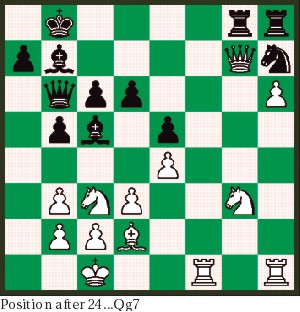| Chess
and music Chess
Chess, though basically a symbolic warfare, has been compared
to music and love, perhaps because of its inherently peaceful
nature and the power to stir imagination. Though the element
of competitiveness adds a touch of the mundane to this game,
it can still be a source of endless joy. Like the most devoted
music lovers, only the erudite chess fans derive pleasure
from the games played at the highest level. Dr. Siegbert
Tarrasch, the German Grandmaster, elevated it to a higher
plane when he said, "Chess is like love, like music,
has the power to make a man happy." Don't forget the
same doctor advised the young learners to sit on their hands
when victory is in sight!
An
American chess writer once called Capablanca the Mozart
of chess and Alekhine the Wagner. He also made a very interesting
observation on the Capablanca-Alekhine world championship
match played in 1927, " The irresistible force (Alekhine)
had met the immovable object (Capablanca)".
Now
is there anything common between chess and love? Yes , chess
players and fans love the game almost frantically. But is
that something unrequited ? I think not. There are instances
of players spending their whole lives for this beautiful
game, even though most of them never played at the top level
. They enjoy and play it. That's all. Grandmaster Salo Flohr
once said, "Chess like love is insidious (!) at any
age." That is the ultimate in any discourse on chess
and love.
Once
the relationship is established, few have succeeded in terminating
it. Jacques Mieses played for the first time in a tournament
in 1888 and his last appearance was in Groningen in 1946!
As a player , he never quite reached the world class, but
he produced some nice attacking games . That was perhaps
true about most of the players in the late 19th century,
when the masters were still trying grasp the finer points
of Wilhem Steinitz's principles of weak pawns, bad bishops
and so on .
 Here
is the game in which Mieses leaves his queen enprise, but
Black can do little about it. Here
is the game in which Mieses leaves his queen enprise, but
Black can do little about it.
Here
is his famous game against Donald Byrne.
White-Jacques Mieses
Black-David Janowski
Paris, 1900
1.e4 e5 2.Nc3 Nf6 3.Bc4 Bc5 4.d3 d6 5.f4 Nc6 6.f5 Na5 7.Qf3
c6 8.g4 h6 9.h4 b5 10.Bb3 Nxb3 11.axb3 h5 12.gxh5 Nxh5 13.Nge2
Qb6 14.Ng3 Nf6 15.Bg5 Bb7 16.h5 Nh7 17.Bd2 000 18.h6 g6
19.000 Rhg8 20.fxg6 fxg6 21.Rdf1 Kb8 22.Qf7 Rh8 23.Qxg6
Rdg8 24.Qg7 Bc8 25.Nf5 Bxf5 26.Rxf5 Bb4 27.Kb1 Bxc3 28.bxc3
Nf8 29.Rhf1 Ng6 30.Qd7 Rd8 31.Qe6 Nf4 32.Bxf4 exf4 33.R5xf4
Qc5 34.Rf7 Qg5 35.Rf8 Qc5 36.Qe7 1-0
Patzer
| 
 Here
is the game in which Mieses leaves his queen enprise, but
Black can do little about it.
Here
is the game in which Mieses leaves his queen enprise, but
Black can do little about it.